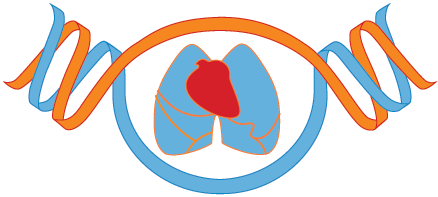- Get Started
- Centers
- Administrative Coordinating Center (ACC)
- Informatics Research Center (IRC)
- NIH
- Omics Centers
- Baylor Human Genome Sequencing Center
- Baylor-UTHealth Metabolomics Center
- Broad Institute Genomics Platform
- Broad Institute Metabolomics Platform
- Broad Institute and Beth Israel Proteomics Platform
- Illumina
- Keck MGC
- New York Genome Center Genomics
- Northwest Genomics Center
- New York Genome Center RNA-seq
- Psomagen
- Projects/Studies
- Working Groups
- Data
- Publications
- EEP
- ELSI
- Workshops
Carson - Jackson Heart Study (JHS)
Updated 10/8/2021
Introductory slides from the June 4, 2015 Steering Committee/EAP meeting (requires log-in).
The Jackson Heart Study (JHS) https://www.jacksonheartstudy.org/jhsinfo/ is a large, community-based, observational study whose participants were recruited from urban and rural areas of the three counties (Hinds, Madison and Rankin) that make up the Jackson, MS metropolitan statistical area (MSA). Participants were enrolled from each of 4 recruitment pools: random, 17%; volunteer, 30%; currently enrolled in the Atherosclerosis Risk in Communities (ARIC) Study, 31% and secondary family members, 22%. Recruitment was limited to non-institutionalized adult African Americans 35-84 years old, except in a nested family cohort where those 21 to 34 years of age were also eligible. The final cohort of 5,301 participants included 6.59% of all African American Jackson MSA residents aged 35-84 during the baseline exam (N-76,426, US Census 2000). Among these, approximately 3,700 gave consent that allows genetic research and deposition of data into dbGaP. Major components of three clinic examinations (Exam 1 – 2000-2004; Exam 2 – 2005-2008; Exam 3 – 2009-2013) include medical history, physical examination, blood/urine analytes and interview questions on areas such as: physical activity; stress, coping and spirituality; racism and discrimination; socioeconomic position; and access to health care. Extensive clinical phenotyping includes anthropometrics, electrocardiography, carotid ultrasound, ankle-brachial blood pressure index, echocardiography, CT chest and abdomen for coronary and aortic calcification, liver fat, and subcutaneous and visceral fat measurement, and cardiac MRI. At 12-month intervals after the baseline clinic visit (Exam 1), participants have been contacted by telephone to: update information; confirm vital statistics; document interim medical events, hospitalizations, and functional status; and obtain additional sociocultural information. Questions about medical events, symptoms of cardiovascular disease and functional status are repeated annually. Ongoing cohort surveillance includes abstraction of medical records and death certificates for relevant International Classification of Diseases (ICD) codes and adjudication of nonfatal events and deaths. CMS data are currently being incorporated into the dataset.
Key initial analyses of whole genome sequence will focus on identifying uncommon and rare variants (perhaps including “Goldilocks” alleles like those in PCSK9) that are associated with LDL cholesterol and triglyceride concentrations. Variants with sufficiently high allele count will be imputed into African Americans in multiple other cohorts to confirm association with cholesterol and triglyceride levels, and their potential association with myocardial infarction and other phenotypes and outcomes will be assessed. More broadly, we will seek association of uncommon and rare variants with other important heart, lung, and blood phenotypes, and will develop and share the most comprehensive imputation panel to date for SNVs and structural variants in populations of African ancestry.
Additional information:
-
Of those with complete genetic consent and GWAS data, 1,594 members of 392 families are included in a nested Family Cohort, based on a pi-hat cut-off of 0.09375.With pi-hat cut-off of 0.1875 the number is 1288 members of 379 pedigrees.
-
Chest CT was done in 2,884 participants during Exams 2 and 3.
-
Cardiac MRI has been done in ~2,500, spanning Exams 2 and 3.
-
GWAS genotyping (Affymetrix 6.0 imputed to 1000 Genomes [cosmopolitan panel, Phase 1, v. 3]), is available for 3,029 participants.
-
After extensive QC, jointly called exome sequence is available for 3,237 participants.

